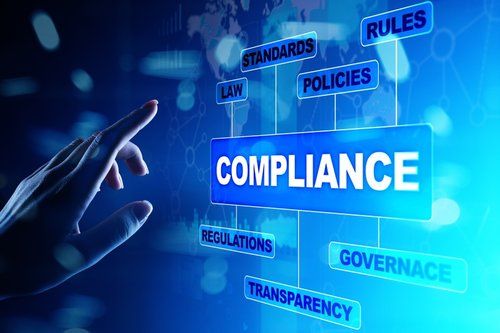
In today’s fast-evolving digital world, business cybersecurity compliance is no longer optional—it is a critical necessity. With rising cyber threats, stricter global regulations, and increased data vulnerabilities, organizations must focus on maintaining strong cyber compliance to protect their data, customers, and reputation. This blog explores the importance of compliance, key regulations, risks, benefits, and what the future holds for cybersecurity governance.
Introduction
Cyberattacks are becoming more frequent, sophisticated, and costly. As businesses embrace digital transformation, the need for proper cyber compliance becomes even more crucial. Whether you run a small startup or a large enterprise, meeting compliance standards ensures the security, privacy, and integrity of your digital ecosystem.
What Is Cyber Compliance?
Cyber compliance involves following established laws, regulations, security standards, and industry best practices that guide how organizations safeguard, process, and manage digital information. These frameworks outline the technical safeguards and procedural measures companies must put in place to maintain data privacy, integrity, and accessibility.
Although compliance requirements differ across industries and regions, their core purpose remains the same: to prevent unauthorized access, data breaches, misuse, and cyber threats targeting sensitive information.
To handle these obligations efficiently, businesses rely on a strong Compliance Management System (CMS). A CMS provides a structured approach to managing policies, monitoring controls, performing audits, and ensuring that compliance processes are consistently implemented across the organization.
Key Cybersecurity Regulations and Standards
Businesses across industries must comply with specific frameworks such as:
1. GDPR (General Data Protection Regulation)
Applicable to companies handling EU citizens’ data. It focuses on consent, privacy protection, and transparency.
2. HIPAA (Health Insurance Portability and Accountability Act)
Protects sensitive patient data in healthcare organizations.
3. PCI-DSS (Payment Card Industry Data Security Standard)
Applies to businesses dealing with credit/debit card transactions, ensuring secure payment environments.
4. ISO 27001
A global information security management standard.
5. SOC 2
Ensures secure handling of customer data by service providers.
These regulations emphasize the importance of cyber compliance and help reduce cyberattack vulnerability.
PCI DSS vs HIPAA
Both standards are designed to protect sensitive data, but they serve different sectors:
- PCI DSS: Focuses on cardholder information security for retailers, e-commerce, and financial institutions.
- HIPAA: Protects medical records and patient data within healthcare organizations.
While PCI DSS emphasizes secure payment processing, HIPAA prioritizes patient privacy and clinical data protection
The Risks of Non-Compliance
Failing to meet business cybersecurity compliance standards can result in:
- Heavy regulatory fines
- Legal penalties
- Customer trust loss
- Data breaches and financial damage
- Operational downtime
- Reputational harm
In some industries, non-compliance can even lead to business closure.
Benefits of Maintaining Strong Cyber Compliance
Maintaining compliance offers multiple advantages:
- Stronger protection against cyberattacks
- Improved brand trust and customer confidence
- Reduced likelihood of legal risks
- Enhanced operational efficiency
- Better data governance
- Competitive market advantage
Steps to Achieve Cyber Compliance in Your Organization
- Conduct a risk assessment to identify vulnerabilities.
- Implement security policies, including encryption and access control.
- Train employees on security best practices.
- Maintain documentation for audits and reporting.
- Use security tools to detect and prevent threats.
- Regularly update software and infrastructure.
- Monitor compliance continuously rather than once a year.
Role of Employees in Ensuring Cyber Compliance
Human error is still the biggest cyber risk. Training employees about threats like phishing, password hygiene, and data handling ensures stronger compliance and reduces internal vulnerabilities. Every employee—from interns to executives—plays a crucial role.
How Technology Helps in Meeting Compliance Requirements
Technology simplifies compliance through:
- Automated monitoring tools
- AI-powered threat detection
- Encryption and secure communication
- Identity and access management
- Compliance dashboards and reporting
These tools support consistent compliance across departments.
Outsourcing vs. In-House Cyber Compliance Management
In-house management offers more control but requires expertise, time, and budget.
Outsourcing is ideal for businesses seeking professional cybersecurity support, 24/7 monitoring, and cost efficiency. Many organizations outsource compliance to achieve fast, error-free adherence to regulations.
Continuous Monitoring and Auditing for Compliance
Cybersecurity is dynamic, so compliance cannot be a one-time activity. Continuous audits, vulnerability scanning, and monitoring help organizations stay aligned with updates in regulatory frameworks and evolving threats.
Future Trends in Cyber Compliance
The future of compliance includes:
- AI-driven compliance automation
- Zero-trust security adoption
- Stricter data privacy laws
- Global compliance harmonization
- Real-time threat reporting requirements
As regulations evolve, staying ahead becomes essential for all businesses.
Compliance Management System
A Compliance Management System (CMS) helps organizations monitor, track, and manage their compliance processes. It includes policy management, workflow automation, documentation, risk assessments, and audit-ready reporting—all essential for seamless adherence.
10 Compliance Standards Every Business Should Know
- GDPR
- HIPAA
- PCI DSS
- ISO 27001
- SOC 2
- NIST Cybersecurity Framework
- CCPA
- FedRAMP
- FISMA
- COBIT
Conclusion
Strong cyber compliance is no longer optional—it is essential for business survival in today’s digital environment. Embracing compliance not only protects your organization from threats but also strengthens trust, efficiency, and long-term growth. For expert guidance and advanced compliance solutions, CyberShield CSC is your trusted partner in building a secure and future-ready digital infrastructure.
FAQs
1. Why is cyber compliance important for all businesses?
It protects sensitive data, maintains trust, avoids legal fines, and strengthens overall cybersecurity posture.
2. What industries must follow HIPAA?
HIPAA applies to healthcare organizations, insurance companies, hospitals, billing companies, and any entity handling patient data.
3. Is outsourcing compliance management beneficial?
Yes, outsourcing ensures expert handling, 24/7 monitoring, reduced internal workload, and cost-effective compliance implementation.
4. What is the difference between PCI DSS and HIPAA?
PCI DSS protects payment card information, while HIPAA protects healthcare and patient data.
5. How often should compliance audits be conducted?
Regular audits—quarterly or annually—are recommended, with continuous monitoring for maximum security.




